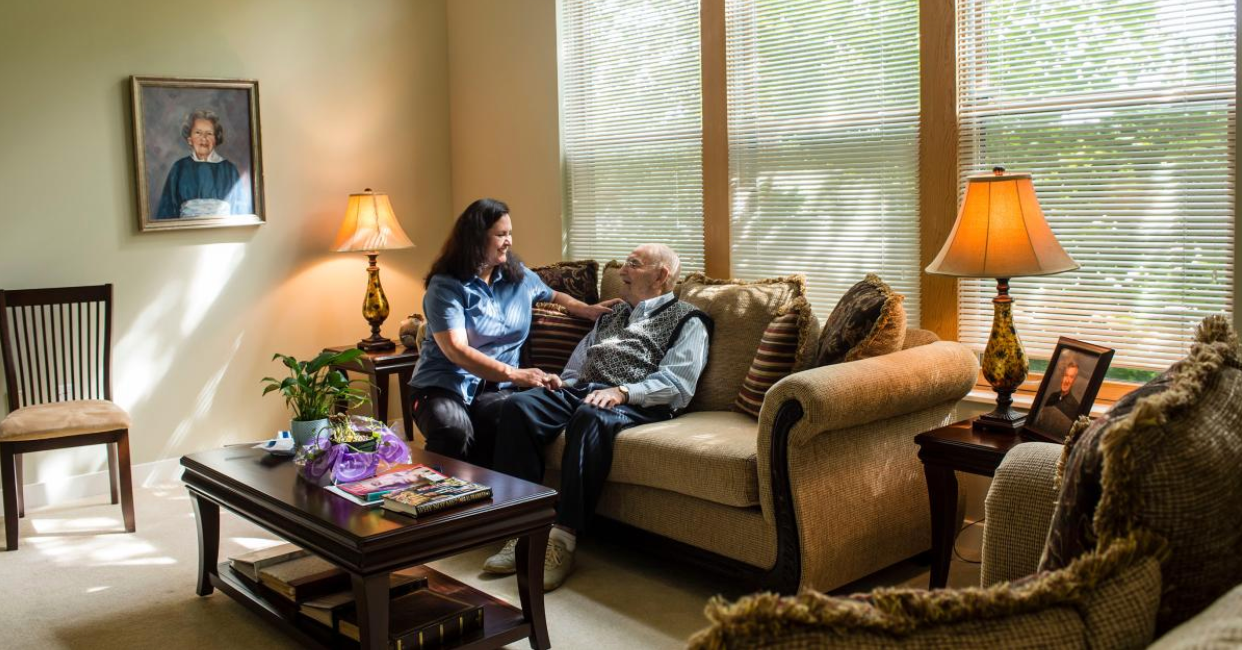Neutropenic Diet for Cancer Patients: Safe In-Home Meal Prep Guide
Neutropenic Diet for Cancer Patients: Safe In-Home Meal Prep Guide
At 7 Day Home Care, we believe that truly understanding the details of neutropenic diet meal preparation is essential to delivering exceptional care—and to giving families peace of mind. For cancer patients with weakened immune systems, every aspect of food safety matters, from how produce is washed and peeled to how meats are stored, cooked, and served. When a home care agency takes the time to train its caregivers in the specifics of the neutropenic diet—including proper sanitation, cross-contamination prevention, and adherence to dietary restrictions—it shows a deep commitment not just to clinical accuracy, but to the patient’s dignity, comfort, and wellbeing. Families can relax knowing that their loved one’s nutritional needs are met safely and attentively, without added stress or risk. This attention to detail transforms what might otherwise be a stressful chapter into one of trust, consistency, and compassionate care—creating an overall experience that feels supportive, safe, and genuinely uplifting.

Are You Searching for a Home Care Agency Near Me for Neutropenic Diet Meal Preparation?
Cancer treatments like chemotherapy, radiation, and bone marrow transplants can weaken the immune system, making patients more vulnerable to infections. When a patient’s white blood cell count drops—especially neutrophils—a neutropenic diet is often recommended. This specialized diet limits exposure to harmful bacteria and prioritizes food safety.
At 7 Day Home Care, we understand how overwhelming nutrition and meal prep can feel during treatment. That’s why our certified home health aides are trained to support cancer patients and their families with safe meal preparation, grocery guidance, and daily care—all from the comfort of home.
In this article, we explain:
- What the neutropenic diet is and why it matters
- What foods are allowed vs. restricted
- Safe cooking and food handling practices
- How in-home caregivers can help
- Additional home care tips for cancer patients with weakened immune systems
What Is a Neutropenic Diet?
A neutropenic diet—also called a low-microbial diet—is designed to reduce the risk of foodborne illness in patients with weakened immune systems. It’s most often prescribed for patients undergoing:
- Chemotherapy
- Radiation therapy
- Bone marrow or stem cell transplants
- Immunosuppressive treatments
These patients are at high risk for neutropenia, a condition where neutrophils (a type of white blood cell) are dangerously low. Without enough neutrophils, the body can't easily fight off bacteria, fungi, or viruses—even from food that is typically safe for others.
Who Needs a Neutropenic Diet?
While the diet is often associated with blood cancers like leukemia, lymphoma, and multiple myeloma, it is also prescribed for patients with:
- Breast cancer
- Colon cancer
- Lung cancer
- Ovarian cancer
- Any cancer involving intense immune-suppressing treatment
Your doctor or oncology nutritionist will typically recommend this diet if your absolute neutrophil count (ANC) is below 500 cells/µL.
What Foods Are Safe on a Neutropenic Diet?
To reduce exposure to bacteria, the neutropenic diet emphasizes fully cooked, pasteurized, and properly handled foods.
Safe to Eat:
- Fruits & Vegetables (if washed and peeled or fully cooked):
- Bananas, apples (peeled), canned peaches, steamed broccoli, baked potatoes
- Meats & Proteins: (whole foods)
- Fully cooked poultry, beef, pork, eggs (well done)
- Canned or cooked legumes (e.g. black beans, chickpeas)
- Dairy:
- Pasteurized milk, cheese, yogurt
- Grains: (whole foods)
- Rice, oatmeal, bread, pasta
- Beverages:
- Bottled or boiled water, pasteurized juices, tea, coffee
Avoid These Foods:
- Raw or undercooked meat, poultry, seafood (e.g. sushi, rare steak)
- Raw fruits and vegetables that can’t be peeled (e.g. berries, lettuce)
- Unpasteurized dairy or juice
- Deli meats and salad bars
- Raw nuts and nut butters from bulk bins
- Soft cheeses (e.g. brie, feta) unless made with pasteurized milk
- Probiotic supplements or yogurts with live cultures (unless approved by doctor)
Safe Neutropenic Diet Meal Preparation at Home: Guidelines for Caregivers
Proper food handling is just as important as food selection. At 7 Day Home Care, our caregivers follow best-practice food safety protocols recommended by the CDC and cancer treatment centers nationwide.
Key Kitchen Safety Rules:
- Wash hands thoroughly before and after food handling
- Sanitize all surfaces, cutting boards, and utensils after raw meat use
- Cook all meats and eggs to proper internal temperatures
- Use separate cutting boards for raw meats and produce
- Discard leftovers after 24–48 hours
- Avoid cross-contamination by keeping raw and cooked foods separate
- Only serve food prepared in clean, controlled environments
How 7 Day Home Care Supports Neutropenic Diet Meal Preparation for Cancer Patients
At 7 Day Home Care, we believe nutrition is a key part of healing—and so is safety. Our certified home health aides are trained to:
- Prepare meals that follow neutropenic guidelines
- Help with grocery shopping and safe food storage
- Follow specific instructions from your oncology dietitian
- Monitor symptoms like appetite loss, nausea, or fatigue
- Document and communicate concerns to your nurse or doctor
We also provide services in multiple languages and respect cultural dietary preferences, helping families feel supported during challenging times.
Benefits of In-Home Neutropenic Diet Meal Support During Cancer Treatment
Nutrition isn’t just about calories—it’s about reducing infection risk, improving strength, and maintaining quality of life. Families who choose 7 Day Home Care benefit from:
- Reduced Stress on Family Members
Caregiving can be physically and emotionally taxing. Our aides relieve the burden of planning and preparing special diets, so loved ones can focus on healing. - Personalized, Compassionate Support
Our aides build trusting relationships with each client, offering encouragement and comfort while honoring unique dietary needs and preferences. - Coordinated Care
We work closely with your care team to follow exact dietary restrictions. If changes in diet or symptoms arise, we adapt quickly and communicate with your medical providers.
Additional Home Health Tips for Immunocompromised Cancer Patients
While diet is a major factor, infection control at home includes more than just food safety. Here are other ways our caregivers help protect your loved one:
- Clean Living Spaces: We assist with light housekeeping and ensure high-touch surfaces are regularly disinfected.
- Safe Personal Hygiene: Caregivers help with bathing, grooming, and oral care—reducing risk of skin infections and other complications.
- Monitoring and Communication: Aides observe for signs of fever, mouth sores, diarrhea, or fatigue—common side effects during treatment that need prompt attention.
- Emotional Support: Nutrition struggles often cause frustration or isolation. Our caregivers provide companionship, patience, and a listening ear.
Frequently Asked Questions About the Neutropenic Diet
What is the purpose of a neutropenic diet?
To reduce the risk of foodborne infections in people with severely weakened immune systems, such as those undergoing cancer treatment.
How long do patients need to follow this diet?
Duration varies. Some patients need it only during chemotherapy, while others—especially transplant recipients—may follow it for several months.
Can patients still enjoy fresh fruits and vegetables?
Yes, but they must be either thoroughly cooked or washed, peeled, and approved by a healthcare provider. Avoid raw produce that cannot be peeled (e.g. berries).
Does Medicare or insurance cover in-home meal prep?
Medicare generally doesn’t cover meal prep as a standalone service, but 7 Day Home Care can work with long-term care insurance or private pay options to provide this support.
Why Choose 7 Day Home Care for Cancer Neutropenic Diet Meal Support?
We are a licensed home care agency serving Manhattan, Queens, Brooklyn, Nassau, and Suffolk County. All of our home health aides are certified by the New York State Department of Health and supervised by registered nurses.
Families choose 7 Day Home Care because:
- All 7 Day Home Care aides undergo comprehensive screening, including criminal history record checks, fingerprinting, and verification of both personal and professional references, ensuring safe and trustworthy in-home care
- Our caregivers are professional, reliable, and compassionate—specially trained in infection control and food safety to support patients with compromised immune systems.
- We understand the physical, emotional, and logistical challenges of managing cancer care at home, and our team is here to ease that burden with respectful, knowledgeable support.
- We accept long-term care insurance, private pay, and offer flexible care plans to meet the unique financial and scheduling needs of every family.
- Whether you need a few hours of help each day or 24/7 live-in support, we provide personalized care solutions that fit your loved one’s condition, preferences, and lifestyle.
If your loved one is undergoing cancer treatment and needs support with safe Neutropenic diet meal preparation or daily living, 7 Day Home Care is here to help. Our trained home health aides bring not just meals—but peace of mind. 7 Day Home Care provides award winning in-home care services throughout NYC, Manhattan, Queens, Brooklyn, and Long Island, New York. To learn more about our specialized in-home care services, please call 516-408-0034.
Brian Callahan
7 Day Home Care










